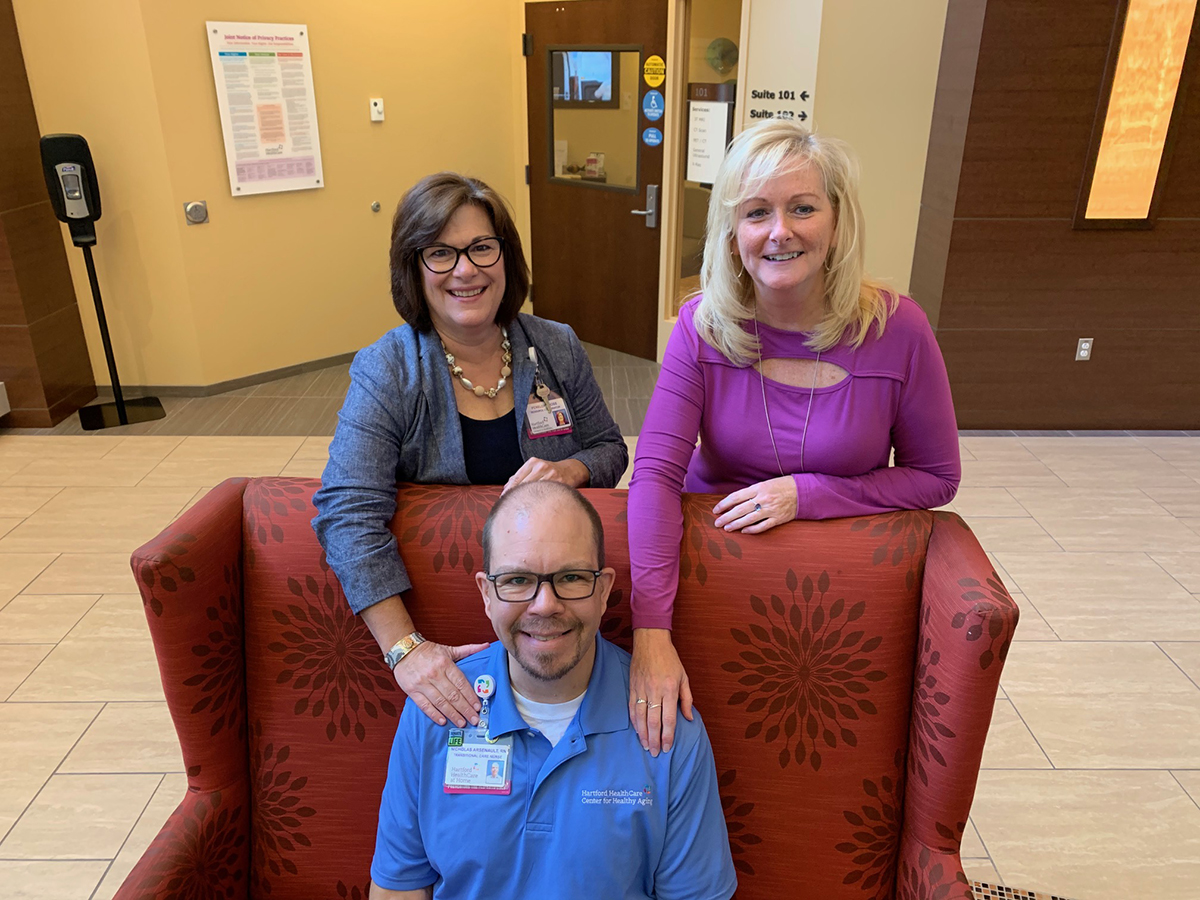Some might say that the best coworkers would cover a shift for you, go the extra mile on your project, or simply come to work each day with a positive attitude and a smile.
Figuratively, great colleagues give an arm and a leg. But what if you needed an organ?
Nick Arsenault, who is waiting for a kidney transplant and looking for a living donor, hopes that one of his co-workers, or maybe even a total stranger, is up to that challenge. A nurse with the Centers for Healthy Aging, Nick is on the waiting list for a deceased kidney donor. The wait could be 5 to 7 years — unless he can find a living donor.
In 2010, he received a kidney from a living donor and was doing well until his body began rejecting the kidney about three years ago.
“My issues stem from a genetic issue I have where my kidneys are too small and got overworked by the time I was 22 years old. I was on peritoneal dialysis for four years before my first transplant,” he said.
Nick is a transitional care nurse and travels the state providing in-home assessments to people in the community.
“I spend about two hours in people’s homes and offer a lot of education. I go over people’s medications with them, try to understand their challenges, and help them navigate the healthcare system,” he said.
“Do they qualify for homecare services? What other services might they benefit from? It’s a phenomenal program, and it feels like where I’m meant to be. I help people stay at home where they want to stay and prevent stuff from happening to them in real time.”
It’s no wonder that Nick’s closest colleagues — and even his boss — have considered donating a kidney if they are a match.
“When you look at somebody like Nick, you can’t help but want to help him. He is one of the best nurses I’ve ever known. He treats every patient like a family member, and I would want Nick to take care of me,” said his supervisor Wendy Martinson, director of the Centers for Healthy Aging.
Wendy is in the early stages of the living donation process. It all starts with a phone call to indicate interest. She placed an initial call to Hartford Hospital’s Transplant Center in August and completed the necessary paperwork to get started.
His colleague Penny Ross, a resource coordinator, also made a call and says she is approaching the process one step at a time.
“The transplant team has a lot of resources available for a potential living donor to learn more about the process and answer questions. The screening process is not invasive at all, and it has been really easy,” she said.
She says she feels everything is going to work out the right way, whether Nick receives a kidney from her, Wendy, or someone else.
“It blows my mind that people I work with want to help me. I still can’t believe that someone who I worked with years ago donated to me back in 2010. I would like to think I would do the same,” said Nick.
To be a living kidney donor, you need to be at least 18 years old and have no history of kidney disease, heart disease, diabetes or active cancer.


